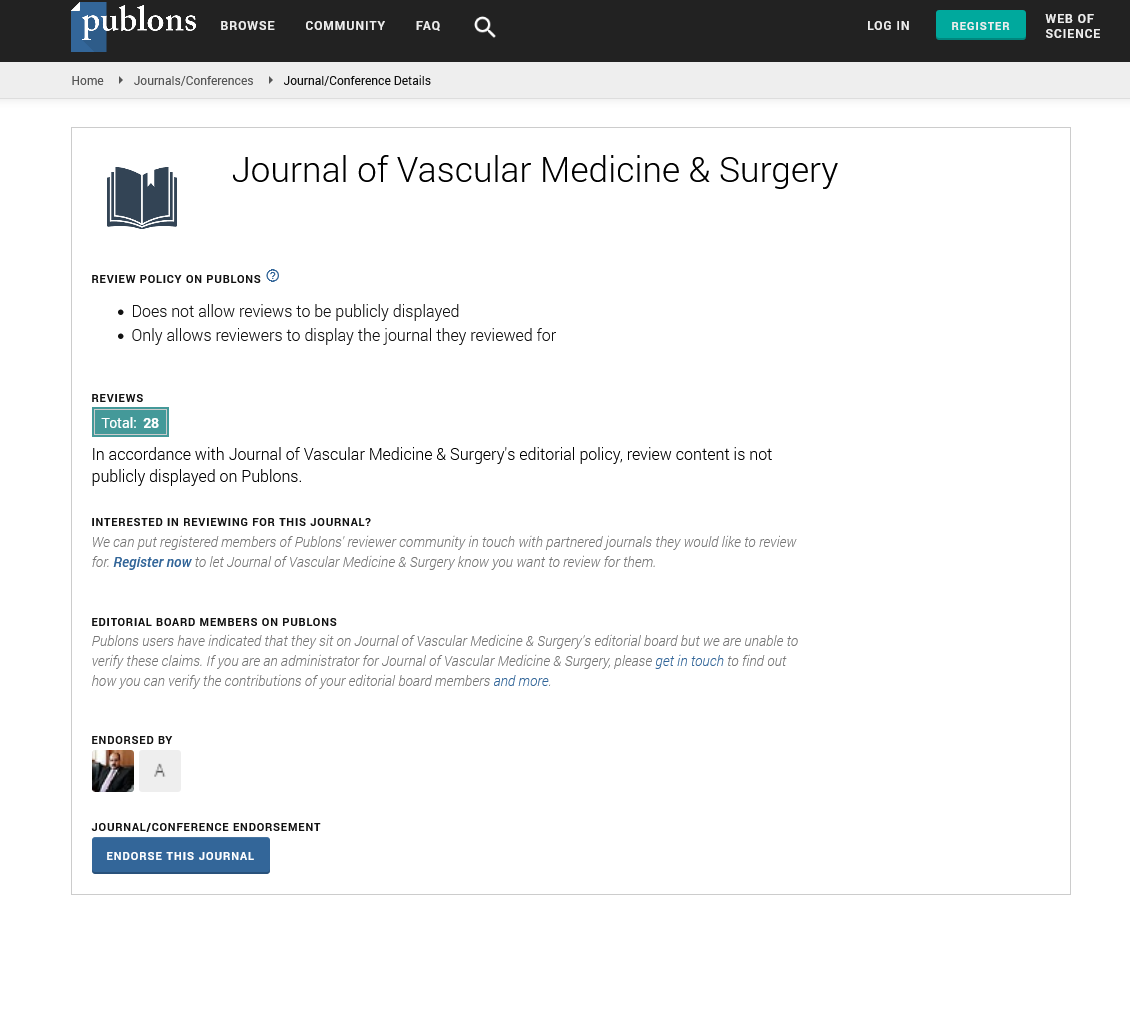Indexed In
- Open J Gate
- Academic Keys
- RefSeek
- Hamdard University
- EBSCO A-Z
- OCLC- WorldCat
- Publons
- Euro Pub
- Google Scholar
- SHERPA ROMEO
Useful Links
Share This Page
Journal Flyer

Open Access Journals
- Agri and Aquaculture
- Biochemistry
- Bioinformatics & Systems Biology
- Business & Management
- Chemistry
- Clinical Sciences
- Engineering
- Food & Nutrition
- General Science
- Genetics & Molecular Biology
- Immunology & Microbiology
- Medical Sciences
- Neuroscience & Psychology
- Nursing & Health Care
- Pharmaceutical Sciences
Abstract
Complex Cardiovascular Surgery in Jehovah's Witness Patients
E Ramiaramanana, S Taamalah, N Rabah, A Al Karaky, Imen Benhadj and C Vaislic
Background: Cardiovascular surgery in patients who are Jehovah’s Witnesses (JW) poses both technical and ethical challenges because these patients strictly refuse the administration of allogeneic blood. The challenge is particularly great in patients who have co-morbidities or who undergo complex procedures.
Methods: We retrospectively reviewed the characteristics and outcomes of 153 consecutive JW patients who underwent cardiovascular surgical procedures between January 2005 and January 2013 at the Parly II Medico- Surgical Centre in Le Chesnay, France. Our first objective was to compare perioperative outcomes (morbidity and mortality) between a group of patients with co-morbidities posing specific challenges in terms of transfusion avoidance and the general JW population operated at our institution during the same period. Our second objective was to compare morbidity and mortality outcomes between patients undergoing simple procedures and those undergoing complex or combined procedures.
Results: Of 153 JW patients operated during the study period, 13 (8.5%) had co-morbidities posing specific challenges in terms of transfusion avoidance and were classified as high-risk patients. Among high-risk patients, mean EuroSCORE was higher (5.23 (range, 0-14) vs. 4.37 (range, 0-16.76); p=0.005) and there was a greater proportion of redo procedures (23% vs. 11.4%; p=0.001). Compared with the control group, the high-risk group had a 2.4-fold longer mean ICU length of stay (6.5 vs. 2.7 days; p=0.001) and a higher perioperative mortality (23% vs. 2.1%; p=0.001). Forty-nine patients (32%) underwent complex procedures, whereas 104 patients (68%) underwent simple procedures involving a single surgical repair. The perioperative complication rate was 20.4% among patients undergoing complex procedures, compared with 11.5% in the control group (p=0.001). Perioperative mortality was 4.08% in the group undergoing complex procedures, compared with 3.85% among patients requiring single-repair procedures (p=0.005). Among patients undergoing redo surgery, mortality rates were 11.1% and 2% in patients who underwent complex and simple procedures, respectively (p=0.001), whereas in patients with a first surgery the corresponding mortality rates were 2.5% and 2.1%, respectively (p=0.005).
Discussion: In our experience, complex cardiovascular surgical procedures can be performed with good outcomes in JW patients who have risk factors in addition to their main surgical pathology or require complex procedures.

